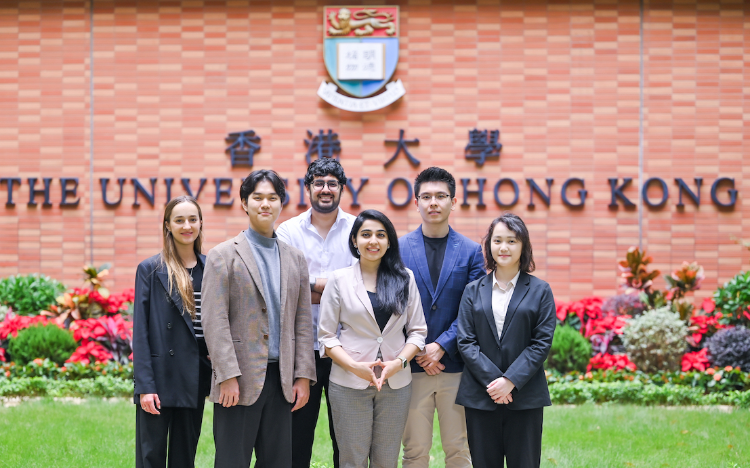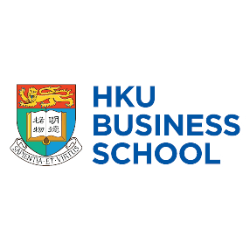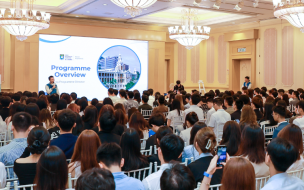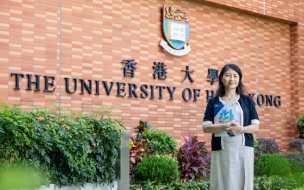Thanks to rapid globalisation there is strong demand for these global management skills.
BusinessBecause spoke to Mikkel From, who moved from his native Denmark to earn a Master of Global Management in Hong Kong. He tells us why he chose to study in Asia—and how his studies are preparing him for working on an international level. Professor Chun Hui, Management Faculty of Business and Economics, also tells us more about the program's curriculum.
Choose a university that is strategically located
Mikkel chose to earn his degree in Hong Kong because of its strategic position between Europe and Asia. Having studied at Copenhagen Business School—and in Istanbul as an exchange student—he wanted to expand his international view of the world of business. He also thought the city could give him insight into industries such as shipping and banking, and into how different companies operate.
With a curriculum that incorporates individual, organisational and national knowledge pertinent to effective management of global issues the Master of Global Management (MGM) at HKU Business School can prepare students for roles at companies across the world.
"We equip students with scientific knowledge and challenge them to reduce complexities of problems and identify workable solutions," says Professor Chun Hui. "Our curriculum focuses on global management knowledge and problems, but we believe that the knowledge application and problem-solving skills are also applicable to careers beyond global management."
Choose a university that aligns with your ambitions
Mikkel (right) originally planned to work in Hong Kong for two or three years once he earned his MGM but has been so impressed with the city where he is studying that he now plans to stay for up to a decade. He says he hopes initially to find a job in the realm of ESG [Environmental, Social and Governance] and sustainability, moving up to managerial level. Ultimately Mikkel would like to be CEO of a mid-sized company of up to 500 employees. “Studying here has shown me a side of China that is not often reported in Europe. I’ve learned how important ESG is becoming here, how technology is developed, how companies can perform better,” he says.
Take advantage of the cultural opportunities offered by your MGM
Mikkel has enjoyed his program’s curriculum: “There are many courses focussing solely on leadership and managing across cultures,” he says, which he has found very useful. International organisations need leaders who are able to work across borders and who are agile enough to adapt to changing and emerging business trends.
He has also enjoyed learning how multinational companies can enter different markets and the case studies he has been given. “We learned how companies sometimes get things wrong, such as one organisation sending a Japanese executive who didn’t speak English to a job in America. Cases like this teach you about cultural differences and how to navigate them.”
Mikkel believes the in-depth nature of the cases he has studied have given him a better understanding of how to develop the right strategy when entering a new market.
Cross-cultural negotiation and communication are a key part of an MGM and Mikkel feels his cultural outlook has been further enhanced by his fellow students: “My peers include eight fellow Europeans and many people from China, most of whom have studied abroad already, in the US and Canada, Australia and so on so we get a lot of insight into different backgrounds." He also notes that not all of his fellow students come have a business-related background and are from a variety of professional fields including engineering, coding, and tech.
"Organizations are using teams to resolve complex problems because of the multiple perspectives that enable synergy," adds Professor Chun Hui. "This synergy is more likely when team members have an inclusive spirit, one that respects and learns from each other."
Take advantage of networking opportunities
The university arranges regular careers fairs where students can meet potential employers. “The big four consultants come, as well as organisations like HSBC and LVMH,” says Mikkel. “You get an opportunity to talk to different people and learn how different companies operate here.” Insight such as this dovetail with coursework that helps students analyze and create business strategies that work across multiple regions—vital for working at companies operating on an international level.
With an MGM students can go on to work in a wide range of sectors such as supply chain management, marketing, and human resources, as well as consulting and finance. The program also prepares students for roles in multinational corporations, NGOs, and government agencies.
In October, Mikkel and four of his fellow students formed the HK Consulting Club. “We wanted to get as much as possible from our studies and had a little free time," he explains. The club works on case studies and also on real-life briefs and projects. Now 30-members strong, it is currently working on an ESG project for a company in Hong Kong and a web 3:0 consulting project. The club has been supported by HKU, which has helped with further networking opportunities, connecting students with professionals.







